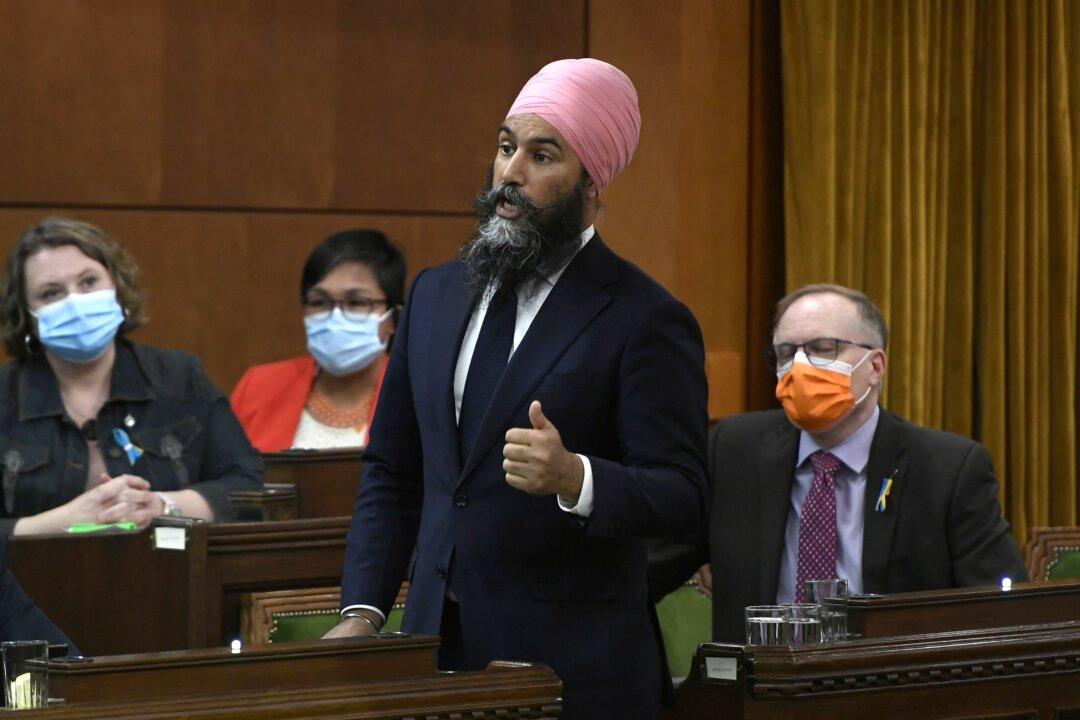NDP leader Jagmeet Singh says his party will push for government regulation of social media platforms to quell “hate and misinformation,” adding that private companies should not hold sole responsibility for content management on their platforms.
“The government has a responsibility to play in making sure social media platforms are adhering to proper guidelines around misinformation, around hate,” Singh told reporters during a virtual press conference on Jan. 4.





